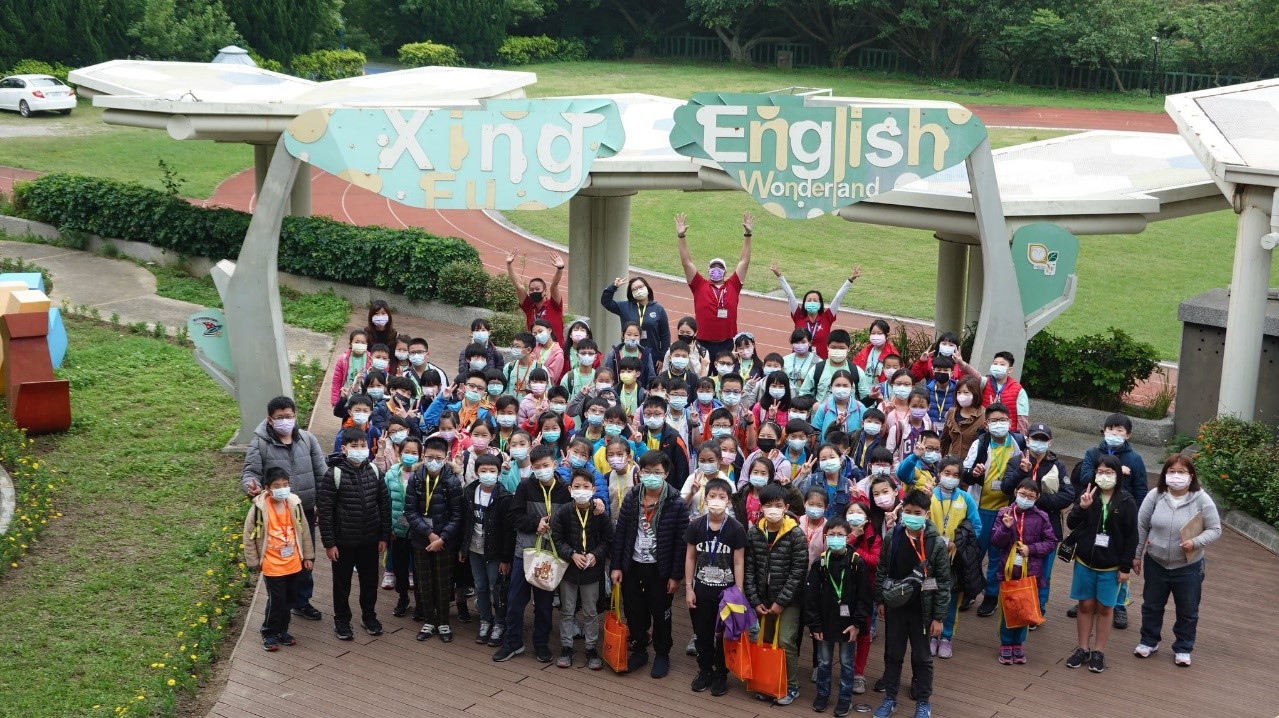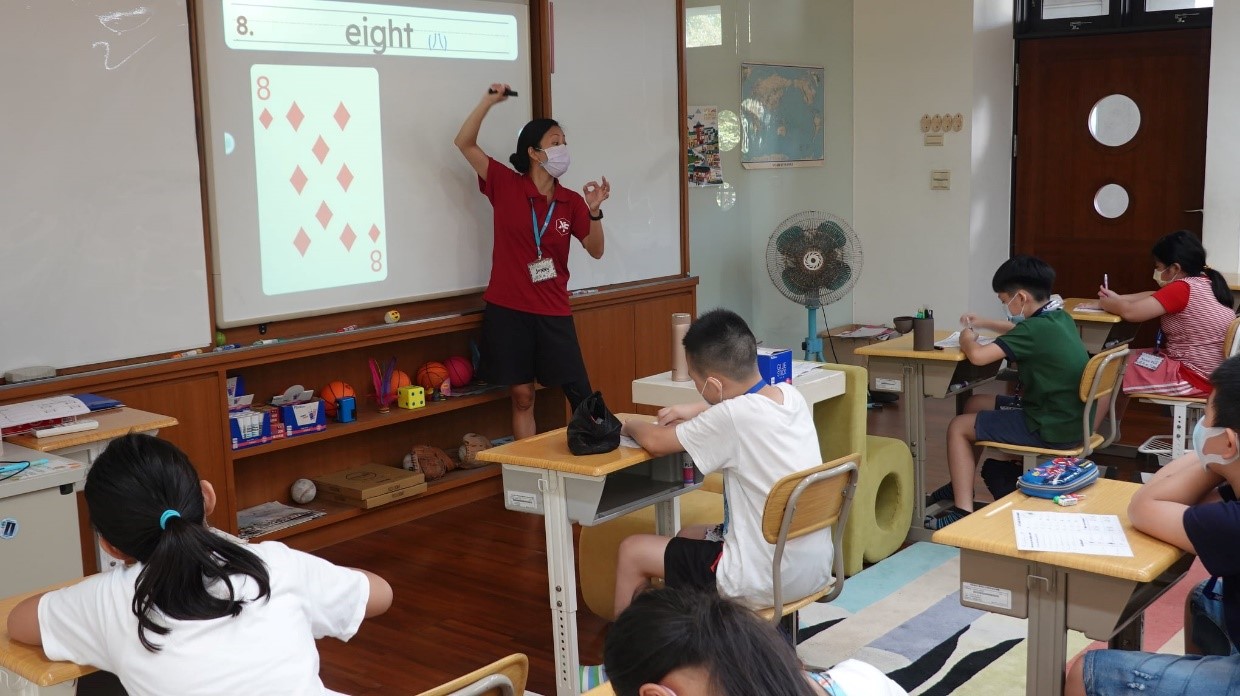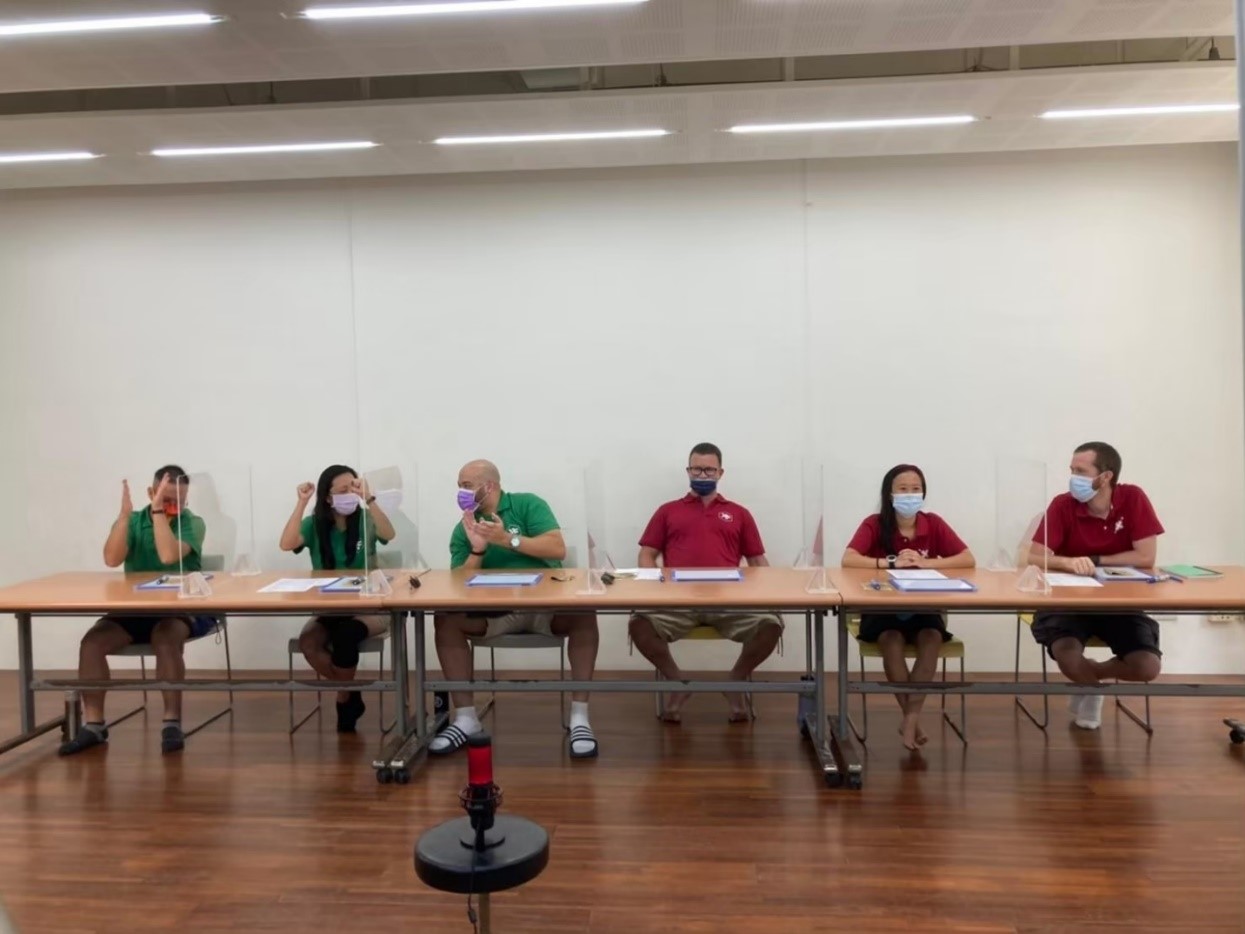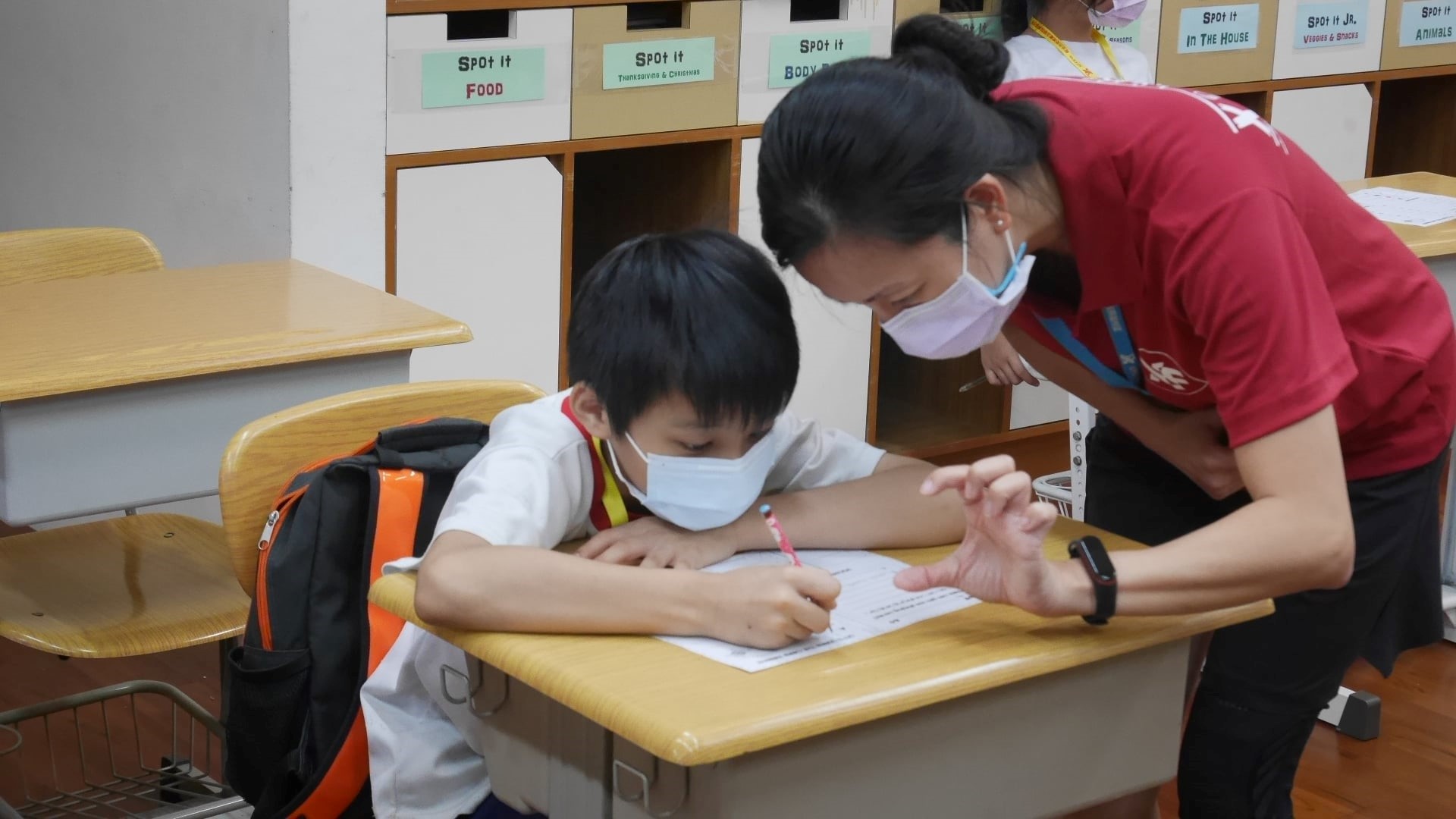Advantages of Teaching in A Public School VS. A Cram School
by Jenny Tsai

Even before the recent global pandemic, flocks of foreigners have been making their way here to the hidden gem of Taiwan. Many come with the intention of only staying for a short period of time or perhaps they were simply passing through on their way to travel the rest of Asia, but oftentimes these travelers end up falling in love with this tiny island nation and staying for much longer than intended. Those who come to the country in hopes of experiencing the amazing quality of life, delectable foods, and rich culture that Taiwan has to offer must also find a way to earn a living. Although there has been a recent influx of digital nomads, entrepreneurs, and so called ‘Covid refugees’ coming into the country, the most common answer to the question “What are you doing in Taiwan?” is probably still “I am here teaching English.”

When you travel through the metropolitan cities of Taiwan, you will likely find some kind of English language learning center, institute, or school on almost every corner. Learning English in Taiwan has always been in high demand, with parents sending their children to English programs as early as preschool all the way through elementary, middle, and high school, in hopes of creating better opportunities for them in the future. For a long time, many of these services were dominated by privatized institutions and companies, with the most popular being after school English programs run by private “cram schools,” also referred to in Chinese as a 補習班 (buxiban) which essentially means “supplementary learning class.” These cram schools aim to provide immersive English education for school-aged students from K-12, but there are many different variations of cram schools with varying pedagogies, organizational structures, and business models – from small independent businesses to larger franchises or even big corporate chains that offer services ranging from individual and small group tutoring to more traditional classroom-style learning.

While cram schools have played an incredibly important role in elevating the level of English education in Taiwan and influencing education culture here, the Taiwanese government has long recognized the importance of learning English as a foreign language by already making it a mandatory part of the national curriculum in all public schools. However, an even greater emphasis is now being placed on English education after the executive branch of the Taiwanese government announced a proposal to make Taiwan a bilingual English-Mandarin Chinese nation by the year 2030[1]. One of the goals of this initiative is to raise the current English proficiency level of all Taiwanese citizens across the island. So public elementary school students have started learning English at an earlier age, and there are more in-school bilingual programs being established where students don’t just study English as a foreign language, but English education is incorporated into curriculum across core academic subjects. This means it’s an exciting time to become an English teacher in Taiwan, as the demand for English education has increased significantly and the need for good quality English teachers is more critical than ever.

With a market that is already saturated by English language learning centers, private cram schools, and now public schools as well, which environment is better to work in as a teacher? Of course this will depend on what you are looking for and the answer may vary based on individual preferences. Every school or work environment will also have its own unique characteristics and dynamics, for better or for worse, whether it is a public school, cram school, or other kind of language institution. However, if you are a qualified educator looking to teach in Taiwan, I think there are a number of advantages to teaching English in a public school over the more typical cram school. I will outline a few key areas below and share my experiences having worked in both settings over the last several years, then let you decide for yourself.

Wages
Everyone wants to get paid, but how and when you get paid depends on where you work. One advantage of teaching in a public school is that you are a salaried employee. This means your income is guaranteed by the government and ensures you always have a consistent stream of income every month. You don’t need to worry about funds running dry or have to deal with sketchy bureaucracy when you work for the government. But when you work at a cram school, this is not always the case. While I have been fortunate enough not to have issues getting paid in the past, I have heard many stories from fellow cram school teachers who received delayed payments or had part of their pay withheld for reasons sometimes unknown or unexplained, especially if they decided not to renew their contracts.
Most cram schools only pay wages by the hour as well, which means when you don’t work, you don’t get paid. If you get sick or need to take leave, you might be able to stay home and rest but you usually have to sacrifice a portion of your pay in order to do so. Certain months throughout the year also tend to have more holidays or days off (like summer break or the Lunar New Year holiday, which can be up to 3 weeks off) or any emergency-related cancellations (like typhoon days or even Covid-related cancellations). While extended time-off might feel like a good thing, keep in mind it results in a significant cut in your paycheck for that month and will require some financial planning in advance. Not having a consistent amount of income can be a source of stress for some, but this is not something you have to worry about as a public school teacher. Even during these uncertain pandemic times, you can rest assured that you will have job security and consistent pay for the duration of your contract.

Planning, Prep, & Administration
Depending on where you work, it might be possible to earn more income as a cram school teacher if you have an unusually large teaching load (maybe 30 to 40 hours a week, compared to the average teacher’s load of 20 to 25 hours). But keep in mind that your cram school pay only accounts for the number of hours you teach and often does not include any administrative work or time spent lesson planning on top of that. Cram schools often require teachers to write frequent reports about every student as a form of communication to parents regarding each child’s progress. Many also rely on an exorbitant amount of assessment, which can eat up a lot of time. One cram school I worked for in the past offered a small “administration stipend” to cover this, but it barely compensated for the number of extra hours I spent doing work above and beyond my contractual teaching duties. I would go to school early or stay late almost every day to grade homework and quizzes, write communication books, plan out my lessons, or prepare materials, but none of these hours would be paid.

Public school positions, on the other hand, are full-time positions. So while you may be required to work a designated 40-hour week, the number of teaching hours is still only roughly 25 hours per week, which is comparable to an average cram school teacher’s load. But for the same amount of teaching, now you are getting compensated an extra ~15 hours per week that can be used however you choose – planning lessons, preparing materials, developing curriculum, collaborating with other teachers, grading homework, creating new projects, etc. Having paid planning and prep time built into your work day significantly reduces stress levels and minimizes the amount of work you need to take home with you (if any at all). You can have a better work-life balance while still earning good money. And with the cost of living in Taiwan being relatively low for the high quality of life you get in return, you can easily make a very comfortable living and have extra time and money to enjoy.
Work Schedule
When I came to Taiwan to teach, one condition I had was that I did not want to work nights or weekends. Most cram schools offer classes in the after school hours, so you often start your day later and end your workday later as well. Classes usually start in the afternoon and run into the evening or even late night, which makes it harder to socialize or hang out with friends during the week. Some cram schools even hold weekend classes, especially on Saturdays, which are popular for students who already have too many extracurricular activities packed in during the week. Going to work on a Saturday never sounded appealing to me, but it could end up being your reality if you work at a cram school. As a public school teacher, you will always have consistent working hours that just follow the Monday-Friday school day schedule. You won’t have to work late or give up your weekends and can instead use that time to explore all that Taiwan has to offer.

Benefits
Working at a public school also comes with a number of extra benefits. Both public schools and cram schools will sponsor your visa, help you get a work permit, and provide national health insurance and sometimes even labor insurance. However, many cram schools do not offer many allowances or bonuses on top of that. Public school English teachers are eligible to receive a housing allowance every month, as well as paid annual and personal leave, an allotted number of paid sick days, and bonuses at the end of the contract (based on passing evaluation scores). Another reason why I decided to work in a public school setting is because you are allowed flight reimbursements (up to a certain amount) for travel to and from your home country every contract year. This is a huge benefit, especially as travel expenses and flight fares have gone up recently due to the pandemic. Now you won’t have to worry about not being able to see your family at least once a year!
Another added benefit of applying for a public school position through a recruiting agency like Teach Taiwan is that you gain automatic access to a support network that can help you with just about anything. From hiring, processing paperwork, and taking care of legalities, to apartment hunting, setting up doctors’ appointments, or learning how to get a driver’s license here, Teach Taiwan has already helped me with a variety of issues over the years. Many cram schools, particularly smaller chains or franchises, do not even have a designated human resources (HR) department that can specifically help foreigners. In the past, I would need to talk to one person about immigration issues, then ask a different person all my tax questions, discuss hiring procedures with a third person, and deal with housing issues on my own. But now, with Teach Taiwan, I always have someone I can turn to with my questions who I know will help be my advocate whenever I need. On top of all that, Teach Taiwan will sometimes organize social gatherings or cultural day trips for teachers to help us learn more about this beautiful island and give us a chance to meet and connect with other like-minded individuals working in the same industry.

Work Culture
One thing I really love about teaching in Taiwan compared to teaching back in the States is that teachers and educators are highly respected in Taiwanese culture. But working at a cram school can sometimes feel less like working for a school and more like working for a business. This is because cram schools are essentially private businesses, who tend to focus more on profit and pleasing their customer base than treating their employees well. Some companies have very specific methods of teaching or rigid curriculum that must be followed to a T. If you try to stray from their curriculum or supplement with your own ideas, it can be frowned upon. If you do not meet their expectations or are unwilling to live and work by their rules, then you could be cut off or simply replaced by the next eager candidate. This can make teaching at a cram school feel a bit lonely sometimes. You are often in charge of your own classroom and, even though you may have some classroom assistance (maybe from Taiwanese staff), there is little collaboration that takes place between you and other English educators.

Obviously not all cram schools are like this. There are definitely some great cram schools with good working culture and realistic expectations, but in my experience, I have enjoyed a more communal effort and an environment that is more conducive to collaboration and creativity. In a public school setting, you have a chance to work directly with a local Taiwanese English teacher to bounce ideas off of and create fun projects for students that can help supplement the curriculum. So if you are looking for a supportive environment, a place where you have more freedom and flexibility to be creative, and a work culture that supports more teamwork, then I recommend you sign up to teach in a public school.

Education for All
I have always been passionate about education, but more importantly about access to quality education for ALL students. Having taught in both wealthy suburban areas and poor inner-city neighborhoods in the U.S., I have seen firsthand the huge learning disparities that can exist for students from different socioeconomic and cultural backgrounds. The same holds true in Taiwan. Taiwan has a pretty diverse population – from modernized city folk to rural farm folk to aboriginal tribal folk – all with very differing access to a good quality English education. Even in the big city where cram schools and tutoring centers abound, many students still do not have the opportunity to learn English even if they want to. Having worked in a few different cram schools in Taipei, I’ve found that these businesses generally cater to the more affluent populations of Taiwan. Cram schools are not cheap, which means admission is often reserved for wealthier families who can afford it or for those who are willing to prioritize the financial burden of learning English.

However, all Taiwanese students have free access to public education – whether they are in the outlying islands of Kinmen or Matsu, in the mountain villages of Taitung, or in the heart of the capital city of Taipei. Improving English education within the public school system is a step in the right direction towards helping to provide more equal and fair opportunity for all students in Taiwan to learn English. With the “Bilingual 2030” initiative in tow, the government has also been vamping up its K-12 public programs and providing more opportunities for local youth to experience English education in a diverse number of ways. New Taipei City, for example, offers a special sleepaway camp program called English Wonderland, where public elementary school students can apply to spend 3 days and 2 nights in an immersive learning environment practicing English through fun and engaging activities with foreign teachers. Due to Covid restrictions, these special camps have been modified and shortened to just one day now. But the fact that they are still running and being funded by the local government in spite of the pandemic, shows commitment and promise. I hope this is only the start of what will be a trend toward more inclusive and innovative language learning experiences for Taiwanese youth all across the country.

Bouldering Class @ Xingfu English Wonderland

Golf Class @ Xingfu English Wonderland
There really is no better time to teach English in Taiwan than NOW. Not only has this small island nation been able to successfully manage Covid during a global pandemic and afford its citizens a relatively normal life with only moderate to minimal restrictions in the past two years, but it has consistently been named one of the best places for expats to live and work across the globe since before the pandemic even began[2]. If you have the choice to work in a cram school setting versus a public school setting here, there are definitely many advantages to working as a public servant. By becoming a public school educator and joining the Teach Taiwan team, you will be at the forefront of raising the English proficiency of students all over the country, whether in urban or rural areas, regardless of background or socioeconomic status. So what are you waiting for? Apply to teach at a public school in Taiwan today and help raise up a new generation of multilingual learners tomorrow!

[1] Bilingual 2030, by National Development Council
https://www.ndc.gov.tw/en/Content_List.aspx?n=BF21AB4041BB5255
[2] Expat Insider 2021: Best & Worst Places for Expats, by InterNations
(https://www.internations.org/expat-insider/2021/best-and-worst-places-for-expats-40108)


